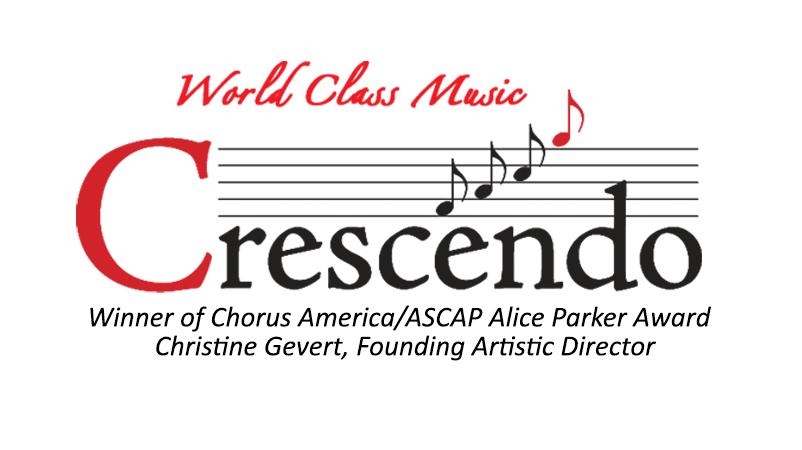How Lovely Are the Messengers
Recorded: September 3, 2021
Lion’s Pavilion at Sharon Veterans’ Field,
Sharon, CT
Performers:
Crescendo Chorus, Vocal Ensemble and soloists, with Christopher Belluscio and Brian Kanner, trumpets, and organist Juan Mesa, directed by Christine Gevert.
In Memoriam: Martha Lynn Baer (May 5, 1939 – June 24, 2021)
Martha graduated from Mary Institute then Vassar College where she graduated in 1961 with a bachelor’s degree in English. After graduation, Martha followed her love of the arts and moved to New York where she worked for the André Emmerich Gallery and then as a Director at Acquavella Contemporary Art Gallery.
In 1978 Martha founded the Contemporary Art Department at Christie’s Auction House where she led it through remarkable growth over a 40 -year period. She was a renowned authority on postwar and contemporary art, with special expertise in abstract expressionism. She was involved in the formation and sale of many of the top contemporary art collections.
A lifelong learner, Martha loved going to the theater and opera as well as spending time with family and friends at her home in Lakeville, CT. She was dedicated to her Church, Trinity Lime Rock, where she sang in the choir. She also was a proud chorus member and founding board director of Crescendo, which is a family of music lovers that brings exquisite choral music to audiences throughout New England. Martha sang in many concerts as a low alto with a deep and warm voice.
She is survived by her brother, Roland C. Baer, Jr. (Mikey); nephews Roland C. Baer III (Sylvia), Claxton A. Baer, Alexander B. Baer (Anna); grandnieces Lydia, Toni, Synthia, Cece, Kate; grandnephews Claxton, Zack, Alex; cousins Alice Muckerman (Rick), Carolyn Cranston (Bob), William Coit.
In Memoriam Jacqueline H. Kuhn November 7,1960—August 2, 2021
Jacqueline was born in Marseille, France, where her father, John L. Kuhn, was a Foreign Service Officer posted to the U.S. Consulate. Jacqueline then moved to Strasbourg and Paris, France, and to Rome, Italy.
Her first nine years in France decisively shaped her life, education, and choice of a profession, which centered around the French language she spoke so beautifully throughout her life with her sisters, Marian Kuhn Beers of West Hartford and Salisbury, and Eleanore Hopkins Boyse, of Washington, D.C., and Salisbury.
Jackie, as she was known to her many friends, graduated from Rumsey Hall and the Kent School, earned a B.A. in French from Columbia and a M.A. in French from the University of Connecticut. She taught French, transmitting to her pupils her love of the language and culture, rooted in her own culture-rich childhood in France. She visited many gardens and estates with her mother, the late Anita Coxe Kuhn of Salisbury, which shaped her profound love of natural beauty and sparked a parallel passion for horticulture and landscape design. Jacqueline worked at numerous private gardens and estates. She was a longtime member of the National Society of the Colonial Dames, Trinity Episcopal Church, in Lime Rock, the Litchfield County University Club, and the Crescendo Singers of the Northwest Corner.
Jackie had a clear, lovely soprano voice, and she thoroughly enjoyed practicing and performing with her fellow singers. She was predeceased by her brother, William Speer Kuhn III, and is survived by her two devoted sisters, Marian and Eleanore, her brothers-in-law David Beers and Matthew Boyse; as well as nephews Fentress Boyse, his wife Leila and son Henry, of New York, N.Y., Derek Boyse of Bozeman, Mont., and Slava Browning of West Hartford; as well as nieces Natalie Boyse of Washington, D.C., and Anya Browning of South Kent.
Program
“If ye love me” by Thomas Tallis (1505-1585)
“O Lord, in thee is all my trust” by Thomas Tallis (c. 1505-1585)
“Jesus bleibet meine Freude” from Cantata BWV 147 by Johann Sebastian Bach (1685-1750)
The performance of this piece is dedicated to the memory of Crescendo singer and friend Jacqueline Kuhn.
“Denn er hat seinen Engeln” MWV B 53 by Felix Mendelssohn Bartholdy (1809-1847)
“Panis Angelicus” by César Franck (1822–1890), arranged by Andrew Crookall (b. 1963)
The performance of this piece is dedicated to the memory of Ann Moloney.
“Oh! for a closer walk with God” by Sir Charles Villiers Stanford (1852–1924)
“Deep River” – Traditional Spiritual, arranged by Adriano Secco (b. 1961)
“Were you there when they crucified my Lord” – Traditional Spiritual
“Swing low, sweet Chariot” – Traditional Spiritual, arranged by Christopher Martin Hampson (b. 1980)
Missa pastoril para a noite de Natal (excerpts) by José Maurício Nunes Garcia (1767–1830)
“Gratias agimus tibi”
“Et incarnatus” (Duet)
“Agnus Dei”
“Glory to God” (Thunderchoir) from Joshua HWV 64, by George Frideric Handel (1685–1759)
The performance of this piece is dedicated to the memory of Callan Moloney.
“Hallelujah” Chorus from Messiah HWV 56 by George Frideric Handel (1685–1759)
– INTERMISSION –
“How Lovely Are the Messengers” from St. Paul Op. 36 by Felix Mendelssohn Bartholdy (1809–1847)
“Laudate Dominum” from Vesperae solennes de confessore KV 339 by Wolfgang Amadeus Mozart (1756-1791)
“Ave verum corpus” K. 618 by Wolfgang Amadeus Mozart (1756–1791)
The performance of this piece is dedicated to the memory of Robert H. Darden.
“God so loved the World” by Sir John Stainer (1840–1901)
“I saw the Lord” by Sir John Stainer (1840–1901)
“Sanctus” from Mass in B Minor BWV 232 by Johann Sebastian Bach (1685–1750)
The performance of this piece is dedicated to the memory of Crescendo singer, founding board director, and dear friend, Martha Baer.
“Amen” from Messiah HWV 56, Part III, by George Frideric Handel (1685–1759)
Program Notes
Designed to comfort and uplift our audience members and all of Crescendo’s friends after the long absence of live concerts, this is a program for lovers of choral music. It features some of the most beloved and popular motets, anthems, and movements of famous choral works from composers such as Mozart, Bach, Handel, Vivaldi, Mendelssohn, Tallis, Stainer and others. These are the melodies, harmonies and lyrics that you probably grew up hearing on special and festive occasions: the flowing chorale “Jesu, joy of man’s desiring” (Bach), Tallis’ “God so loved the world”, the lovely “Ave verum” (Mozart), the mystical “Panis Angelicus” (Franck), the moving Spirituals “Deep River” and Swing low”, the dramatic English anthem “I saw the Lord” (Stainer), and the majestically soaring “Hallelujah” and “Amen” choruses from Handel’s Messiah and the “Sanctus” from Bach’s B-Minor Mass – among others. Mendelsohn’s familiar eight-voice chorus “For he shall give his angels charge over thee” (oratorio Elijah) and “How lovely are the messengers” (oratorio Paulus) show the influence of the great masters before him, and specially of J.S. Bach. This closes the circle of over three hundred years of great choral music of England, Italy, Germany, Austria, France, and the United States.




